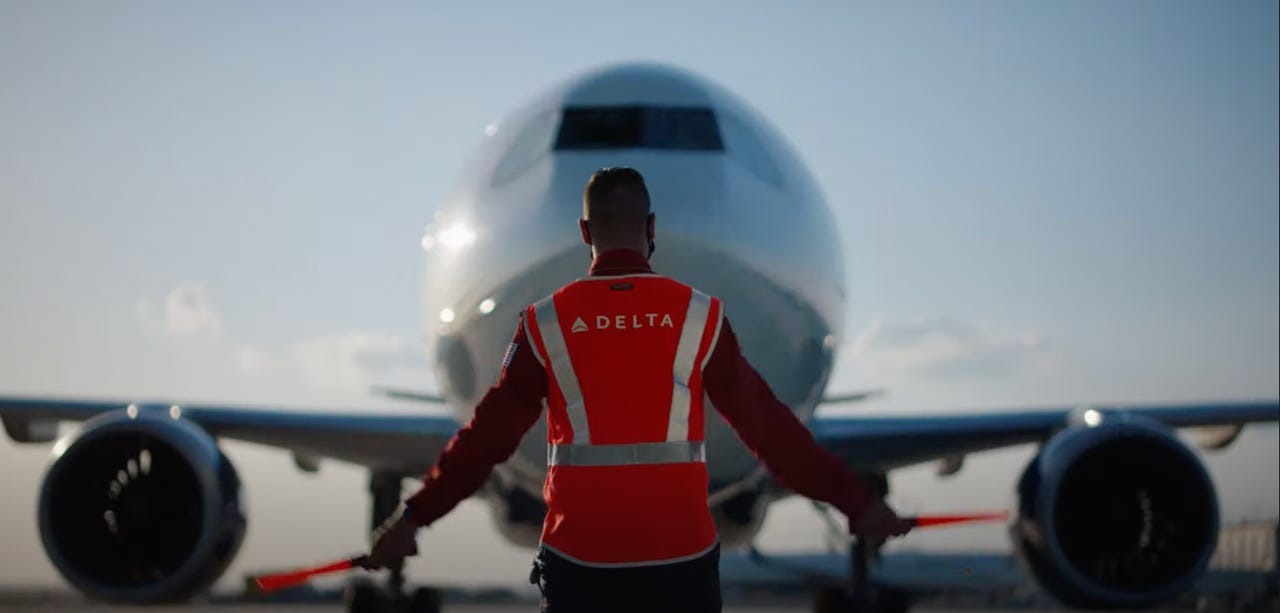Delta Air Lines just admitted to a serious problem, so I tried its latest solution

Suddenly worth it?
Every day that COVID recedes, airlines become happier.
Airline executives, more precisely.
Flight attendants are increasingly unhappy because customers are behaving in increasing asinine and threatening ways.
But let's consider those customers.
I was moved this week by Delta Air Lines offering a pungent admission about its customer problems. Abandonment issues, for example.
It seems that, along with other airlines, Delta suffers from customers putting flights into their shopping carts and then thinking: "Nah, maybe I don't want to spend 800 bucks on a flight to Milwaukee."
This so-called cart abandonment is a particular issue with the younger and more financially sensitive customers.
Also: Delta says it wants the very best customers (then it treats them like this)
So last week, Delta announced it's partnering with American Express to participate in its Plan It feature through the Delta.com website and subsequently its app.
This allows customers to pay over time in instalments. Which, of course, add up to more than the price of the ticket.
American Express says it persuaded Morning Consult to survey flyers and discovered that 68% of Gen Z and millennials desperately want to pay for their travel over time.
And why is Delta desperate to attract the young and restless?
Well, the airline's senior vice president of customer engagement and loyalty -- I always love an eight-word title -- Dwight James told Skift: "The key is catching these younger generation flyers such that they're moving into our ecosystem and they're able to graduate with us, excuse the pun, over time."
Get them now, give them their preferred form of payment, and they'll love you when they're, say, senior vice president of customer engagement and loyalty at, say, a tech company.
Did I mention business travel isn't all that it might be right now?
Delta isn't the first airline to partake of the cake being split into pieces. United and Southwest, for example, use Uplift.
Yet American Express claims its method is better because there's no new credit check and no separate bill.
I tend to simply pay for flights because I've never admired debt. So, until now, I'd never wondered what services such as Plan It actually charge.
Off I went, then, to book a Delta flight via American Express and observe the real cost.
I chose a San Francisco-Minneapolis flight on Delta because I know three lovely people in Minneapolis, which is one or two more than I know in many cities.
Also: Southwest Airlines made a huge change, separating the haves from the have nots
First, I entered an economy flight, which cost $387.20. Amex's Plan It offered me a six-month payment schedule of $66.94 a month. Which, I hastily calculated, totaled $401.64.
Is such a flexible payment schedule worth $14.44 or slightly less than a glass of average wine in your average San Francisco restaurant?
Next, I pretended to be a first-class flyer. I booked the same Delta flights, and the total emerged as $1,202.20. This time, Plan It offered me a six-month schedule of $208.16 a month, totaling $1,248.96. So that's approximately two and a half glasses of wine for the payment plan.
The psychology is fascinating.
For the longest time, one of airlines' prime business models has been constant nickel-and-diming. They lure you in with an apparently cheap fare and then, at the last minute, slip in a feast of small charges that make the true fare much bigger.
It's entertaining that now they think micro-lending, which tries to soften the blow of the fare, is the way to lure younger flyers onto their planes.
As with so many other businesses, airlines have to find new ways of making money.
After all, they have to make up for appearing so immensely generous when, during the pandemic, they finally stopped charging a $200 change fee for a couple of clicks on a keyboard.
